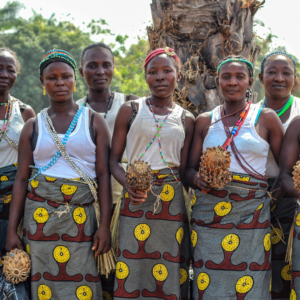The International Day of Rural Women highlights the essential role women play in Africa’s development as farmers, entrepreneurs, and innovators who sustain families, drive rural economies, and protect the environment. Despite these contributions, many still face barriers to land ownership, finance, and decision-making. For the African Development Bank Group (AfDB), this day underscores its mission to place gender equality at the heart of Africa’s growth strategy. Empowering rural women is seen as a powerful tool to strengthen communities, enhance resilience, and achieve sustainable development across the continent, in line with President Sidi Ould Tah’s Four Cardinal Points — mobilizing financial resources for women, reforming financial systems, leveraging demographic potential, and building resilient infrastructure.
Through its Gender Strategy (2021–2025), the AfDB promotes empowerment, acceleration, and transformation, ensuring that women remain central to every development initiative. This approach aligns with the Bank’s broader agenda to expand access to finance and markets, reform systems to better serve women, and ensure that infrastructure investments meet their everyday needs. Various programs across Africa have demonstrated tangible results in improving women’s economic participation and ownership of resources.
In recent years, AfDB has achieved notable progress in advancing gender equality and supporting rural women. In Djibouti, the “Land Is Life” project has provided women with access to land, water systems, and training in climate-smart agriculture, strengthening community resilience. In Côte d’Ivoire, women previously reliant on charcoal trading have transitioned to market gardening, significantly improving their incomes and livelihoods through the Government Social Program Support Project. Complementing these efforts, the Bank’s Affirmative Finance Action for Women in Africa (AFAWA) initiative addresses the $42 billion gender-finance gap, partnering with 185 financial institutions in 45 countries and mobilizing over $2.5 billion for women-led businesses. This initiative has enabled cooperatives such as “Les Moissonneurs” in Côte d’Ivoire to formalize operations, secure contracts, and gain financial literacy.
Recognizing the heavy burden of unpaid labor on women, the AfDB has also invested in gender-responsive infrastructure to reduce time spent on household chores and improve quality of life. In the Democratic Republic of Congo, safe water points built under the Project for the Reinforcement of Socioeconomic Infrastructure have eased workloads, while in South Sudan, the Bank’s resilience programs have improved access to clean water, healthcare, and financial services for nearly half a million people.
Harnessing Africa’s demographic potential remains a key focus of the Bank’s efforts. Initiatives like Technologies for African Agricultural Transformation and Enable Youth equip women and young people with tools in technology, agribusiness, and climate-smart practices. In Nigeria, women-led cooperatives utilizing rice-parboiling technology generated over ₦65 million in sales within a year, showcasing how innovation empowers rural entrepreneurs.
Looking ahead, the AfDB remains steadfast in its goal to ensure that every rural woman has the resources, opportunities, and voice to thrive. Guided by Dr. Ould Tah’s Four Cardinal Points, the Bank aims to continue mobilizing gender-responsive financing, reforming systemic barriers, expanding education and digital access, and developing infrastructure that supports sustainable livelihoods. On this International Day of Rural Women, the Bank reaffirms its belief that rural women are not just beneficiaries of development—they are architects of Africa’s future.







